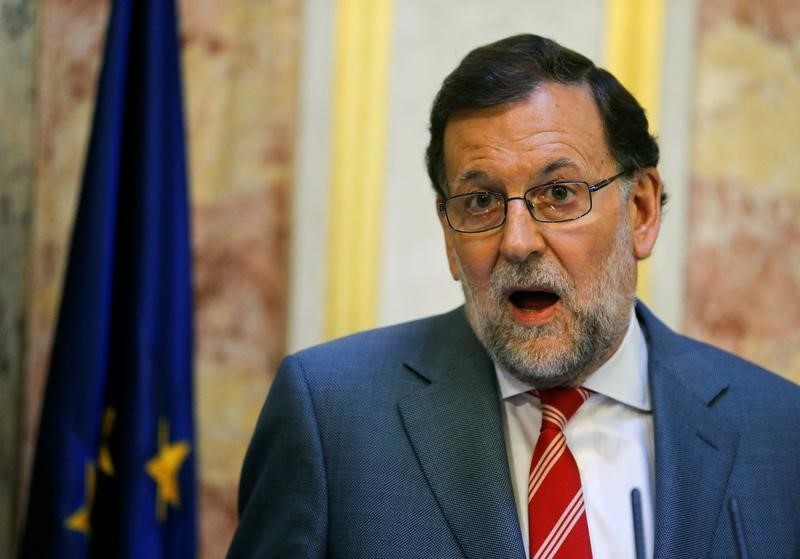By Julien Toyer
MADRID (Reuters) - Spanish Socialist leader reaffirmed on Wednesday his party's intention to vote against a government led by the conservative People's Party (PP), potentially extending a seven-month political deadlock.
The PP won the most votes in a June 26 election, the second in six months, but fell short of a majority. This left acting Prime Minister Mariano Rajoy to convince other parties to join it or at least abstain from blocking it in forming a government.
"We will vote against (Mariano) Rajoy as a prime ministerial candidate," Socialist leader Pedro Sanchez said after a nearly hour-and-a-half meeting with the acting prime minister.
Sanchez also ruled out a "grand coalition" of the left and right, as has happened in some other European countries such as Germany, but added he would "do anything" to avoid sending Spaniards to the polls for a third time after two inconclusive elections.
Speaking after the meeting, Rajoy said he was still aiming to organise a first parliamentary investiture vote by the end of July or beginning of August to try and form a government.
But he also said that if he was certain to fail, he would instead wait until new discussions are held with all parties to see how the stalemate could be broken.
"I want to govern... but if I had the total certainty that my investiture was impossible, I would open a period of reflexion with the other parties to find a way out of this situation," he told journalists.
ABSTENTIONS
The new parliament will be formed on July 19 and King Felipe is expected to hold a formal round of talks between parties as soon as next week.
Spanish liberal party Ciudadanos said earlier on Wednesday that it would abstain in a confidence vote for a conservative government. Ciudadanos placed fourth in the June election.
This put pressure on the Socialists, who came second and who, if they also abstained, could allow a PP government.
Although many analysts believe the Socialists could change their mind and abstain, Sanchez said they were too far away from the conservatives in terms of economic or social policy to consider such a move.
The PP gained only 137 seats in the 350-strong assembly in June, failing to break a stalemate that has hamstrung Spanish politics since the first election in December, which produced a similarly inconclusive result.
"We have to find some way of unblocking this situation and we think a technical abstention is better than ... having a third election," Ciudadanos leader Albert Rivera, whose party won 32 seats, told reporters.
"I hope other parties can do what we have done today."
If only Ciudadanos abstained, Rajoy would still have to win the support of 23 lawmakers from other parties to secure a parliamentary majority.

If Rajoy were to lose the vote, a two-month deadline would be triggered to form a government or call a third election.